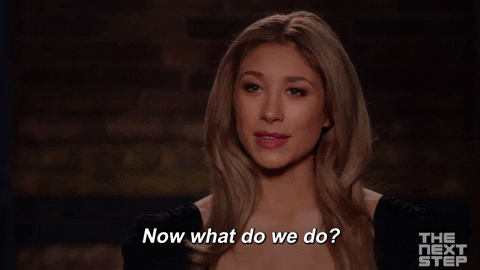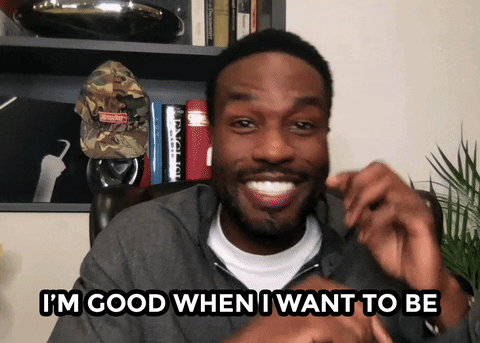Last week, I was reminded of the time I watched a colleague (who's brilliant, by the way) try to explain an important concept to our team.
Despite their deep expertise, the message wasn't landing.
The room was filled with polite nods but vacant eyes.
Later, that colleague confided in me: "I know this inside and out. Why can't I make others see what I see?"
Here’s the problem: having deep knowledge isn’t enough if you can’t make it resonate with others.
And here’s the twist—folks with deep expertise often forget that making their message land requires intentional effort. Whether it’s pitching an idea, leading a team, or influencing a decision, communication doesn’t just happen—it has to be designed.

Here's what I've learned about the barrier between expertise and explanation:
The same deep knowledge that makes you valuable can make you difficult to understand.
It's not about dumbing things down – it's about building bridges between what you know and what others need to know.
Honestly, this paradox has always intrigued me: How does expertise sometimes become a barrier to communication? More importantly, how do we bridge that gap?
Learn AI in 5 minutes a day
This is the easiest way for a busy person wanting to learn AI in as little time as possible:
Sign up for The Rundown AI newsletter
They send you 5-minute email updates on the latest AI news and how to use it
You learn how to become 2x more productive by leveraging AI
This barrier is often due to falling victim to important blindspots associated with expertise.
The Three Blindspots of Expertise:
1. The Context Gap (What experts forget):
The journey that led to their understanding
The foundational concepts they've internalized
The connections that seem "obvious" to them
2. The Language Trap (How experts confuse):
Using technical terms without realizing it
Skipping steps that seem basic
Making references that aren't common knowledge
3. The Relevance Block (Where experts lose people):
Starting with theory instead of application
Not connecting to their audience's reality
Missing the "Why should I care?" question

Gif by thenextstep on Giphy
The Bridge-Building Pattern:
The most effective expert communicators do something counterintuitive – they temporarily step away from their expertise to:
Start with the listener's context
Build from a shared understanding
Create "aha" moments through connection
So, what does this look like in practice:
1. Meet Them Where They Are
Your audience isn’t living in your head—they have their own starting point.
Ask yourself:
What do they already know?
What matters most to them?
Frame your message with their perspective in mind. Relatable language and familiar examples can turn abstract concepts into aha moments.
2. Simplify Without Losing Depth
Your job isn’t to showcase everything you know—it’s to make your knowledge accessible.
Analogies, stories, and visuals are your best tools to distill complexity into clarity. Keep the core value intact, but make it digestible and actionable.
3. Focus on What Matters Most
Clarity beats completeness.
Ask: What’s the most important takeaway?
Share only the insights that move the needle, and structure your message like a story—clear, focused, and easy to follow.

I've been working on this in my own communications.
Instead of diving into a complex analysis, I start with a simple story that connects to everyone's experience.
The difference in engagement was immediate and dramatic.
The most expensive communication mistakes don't result from a lack of knowledge—they result from forgetting what it's like not to know.
Think about it: Your expertise isn't just what you know; it's your ability to help others see what you see.
The question isn't "How do I show what I know?" but "How do I build a bridge to understanding?"

POLL
What's your biggest challenge in explaining complex ideas?

CURATED ROUNDUP
What Caught My Eye This Week
Video: “3 Ways to Express Your Thoughts So That Everyone Will Understand You” - Alan Alda | Big Think
Get an earful of soft skills development when on the go with Blinkist.
FOR ALL YOU ENTREPRENEURS:
Looking to build a lean, profitable internet business in 2025?
The Creator MBA delivers a complete blueprint for starting, building,
and sustaining a profitable Internet business.
Give This a Go This Week:
Before your next important discussion where you need to provide an explanation, find someone who is not familiar with your topic and practice explaining it in terms of their experience. Pay attention to where they get confused or lose interest.
Those are your bridge-building opportunities.
I'd love to hear about your experiences explaining complex ideas. What techniques have worked for you? Reply and let me know.
Thanks for reading. Be Easy!
Girvin
There’s a reason 400,000 professionals read this daily.
Join The AI Report, trusted by 400,000+ professionals at Google, Microsoft, and OpenAI. Get daily insights, tools, and strategies to master practical AI skills that drive results.
What did you think of today's newsletter?

Hey, one last thing…If you found this valuable, share it with the smartest person you know who struggles to explain their ideas.





